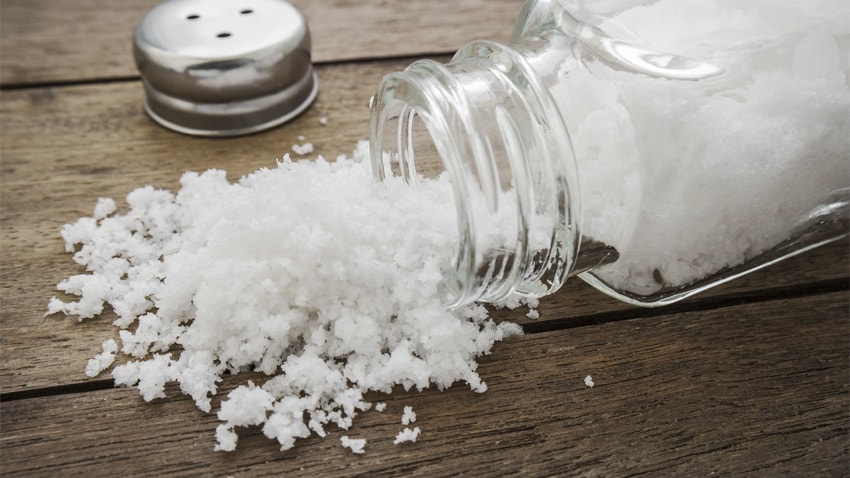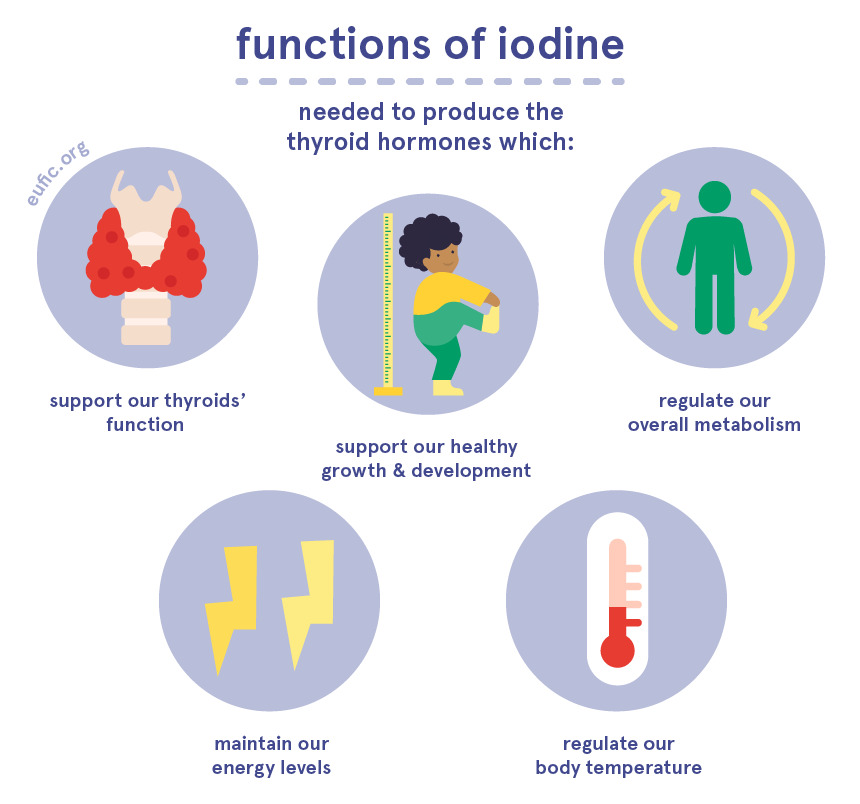Can Iodine improve your body’s Metabolism?
What is Iodine?

Iodine is one of the most vital micronutrients that is used in every stage of life in which early childhood of every individual is the most critical phase where iodine is required the most. The primary function of Iodine inside a human body is to produce thyroid hormones. An imbalance in iodine could lead to overactive or underactive thyroid. Function of such thyroid hormones includes bone health, metabolism, development of Central Nervous System and brain especially during pregnancy and infancy.
Around 70-80 percent of total iodine in a body is found in the thyroid gland of the neck. The remaining iodine could be found in muscles, ovaries, blood, and several other parts of the body. Iodine is also needed to convert food into energy for cells of the body.
Iodine benefits in a human body

Been one of the most vital micronutrients, Iodine is associated with a number of regular health benefits that includes:
- promotion of thyroid health helps in improving metabolism
- manages overactive and underactive thyroid gland
- helps in neurodevelopment during pregnancy
- promotes birth weight
- helps in disinfecting water
- helps to treat infections
- reduces risk of goiters
- assist against thyroid cancer
- improving cognitive functions
- preservation from nuclear fallout
- might be helpful to treat fibrocystic breast diseases.
What are the natural sources of Iodine?

Iodine is a kind of micronutrient that a human body is unable to produce on its own. Therefore, every human body is dependent upon the food they eat to fill up the Iodine needs daily. There are a number of natural sources in the form of food products that contain varied amounts of iodine depending upon the source of food.
The naturally occuring Iodine content in most of the foods and beverages are low. However, marine foods have more Iodine content due to more salt in ocean and sea waters. Some of the good sources of Iodine for a human body are:
- Iodized salt
- Reduced fat milk
- eggs
- whole or sheet seaweed
- shrimp
- cod and tuna
- white enriched bread
- Cheddar cheese
- Oysters
- greek yogurt
- beef liver
Daily amount of Sodium for the human body
Sodium is generally used at every stage of an individual lifetime. The importance of Iodine is the most when a human is in the infant age group. The intake of Iodine is generally based on an individual’s age group, medical condition, and diet. Iodine consumption is classified as:
Infants:
- 110 mcg of Sodium for below 6months old.
- 130 mcg of Sodium for 7-12 months old.
Children:
- 1-8 years of children need 90 mcg of Sodium per day.
- children between 9-13 years old demand 120 mcg of sodium daily.
Teens and Adults:
- teenagers between 14-18 years need 150 mcg of sodium everyday
- Adults need 150 mcg of sodium everyday as well.
Pregnant and Lactating Women:
- pregnant teenagers and women need 220 mcg of sodium daily.
- Lactating or breastfeeding teenagers and women need 290 mcg of sodium daily.
OVERVIEW
- Iodine is one of the most vital micronutrients that is used in every stage of life
- The primary function of Iodine inside a human body is to produce thyroid hormones
- Iodine is associated with a number of health benefits
- A human body is unable to produce iodine on its own therefore consumption of natural food sources are necessary that are rich in iodine.
- The intake of Iodine is generally based on an individual’s age group, medical condition, and diet.
REFERENCES:
- https://ods.od.nih.gov/factsheets/Iodine-Consumer/#:~:text=Iodine%20is%20a%20mineral%20found,development%20during%20pregnancy%20and%20infancy.
- https://healthblog.uofmhealth.org/childrens-health/pass-salt-iodine-crucial-for-kids-diets
- https://www.medicalnewstoday.com/articles/320891
- https://www.ncbi.nlm.nih.gov/pmc/articles/PMC3063534/
- https://academic.oup.com/advances/article/4/2/262/4644577
- https://www.medicalnewstoday.com/articles/288471#recommended-intake-and-sources
- https://www.thyroid.org/iodine-deficiency/
- https://medlineplus.gov/ency/article/002658.htm
For more details, kindly visit below.